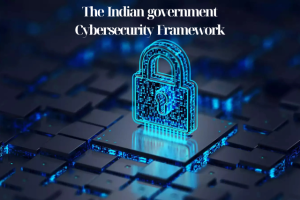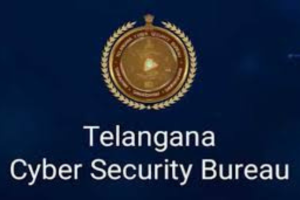India Strengthens Cybersecurity Framework to Combat Rising Cybercrimes
The Central government has strengthened its fight against cybercrime by adopting a multi-pronged framework that would strengthen the country’s response to new digital threats. December 4, 2024: The Indian government has ramped up its efforts to tackle the growing threat of cybercrime, unveiling a multi-pronged framework aimed at addressing new digital challenges and protecting citizens from a wide range of online crimes. The proactive approach was highlighted by Union Minister of State for Home Affairs, Bandi Sanjay Kumar, in response to an unstarred question in the Lok Sabha today. The government’s strategy includes strengthening legal measures, bolstering investigative capabilities, and enhancing public awareness. At the heart of the government’s efforts is the Indian Cyber Crime Coordination Centre (I4C), a central mechanism for handling cybercrimes. Through this system, law enforcement agencies are empowered to report, investigate, and resolve cybercrime cases, including financial fraud, and crimes against women and children. One of the key innovations is the National Cyber Crime Reporting Portal, which allows citizens to report incidents online, with a special emphasis on crimes targeting vulnerable groups. The Citizen Financial Cyber Fraud Reporting System, introduced in 2021, has proven crucial in halting cyber fraud, saving over Rs 3,431 crore across nearly 10 lakh complaints. A toll-free helpline, 1930, has also been established to enable immediate reporting of financial cybercrimes. The Indian government has reinforced its legal framework to address digital threats with key legislation, including the Information Technology Act, of 2000, the Bharatiya Nyaya Sanhita, of 2023, and the POCSO Act, of 2012. According to the National Crime Records Bureau (NCRB), there were 17,470 reported cases of cyber fraud in 2022 alone, including 6,491 OTP fraud cases and 2,910 online banking frauds. In response to the growing sophistication of cybercrimes, the government has made significant investments in cyber forensics. The National Cyber Forensic Laboratory (Investigation) in New Delhi, along with a facility in Hyderabad, is providing state-of-the-art forensic assistance to law enforcement. Additionally, over 98,000 officers have been trained through the CyTrain portal, equipping them with specialized skills to handle cybercrimes. Cyber hygiene awareness campaigns have also been conducted nationwide, targeting government officials, youth organizations, and the general public. The government’s public awareness campaign includes mobile SMS alerts, social media outreach, and digital displays at public transport locations. Influencer collaborations and radio and newspaper campaigns have further amplified the government’s message. Additionally, measures have been taken to block international spoofed calls, which are often used in scams such as impersonation and fake arrests. As part of these efforts, more than 6.69 lakh SIM cards and 1.32 lakh IMEIs have been blocked. The Cyber Crime Prevention against Women and Children (CCPWC) scheme, a key component of the government’s cybersecurity strategy, has allocated Rs 131.6 crore to create forensic-cum-training laboratories and train over 24,600 personnel in awareness and investigation techniques. A special focus has been placed on cybercrime hubs, like Jamtara in Jharkhand and Hyderabad, where joint cyber coordination teams have been set up to enhance law enforcement collaboration.









